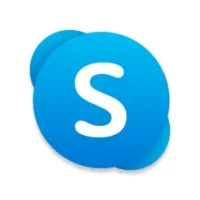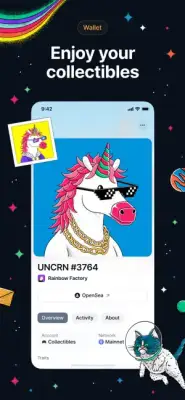Latest Version
2.32.0
February 03, 2025
Status Research & Development GmbH
Social
iOS
149.9 MB
0
Free
Report a Problem
More About Status: Ethereum Crypto Wallet
Status is an innovative application that merges a privacy-focused messenger with a secure cryptocurrency wallet, providing users with a comprehensive tool for communication and digital asset management. It allows users to engage in chats with friends and communities while enabling them to buy, store, and exchange various digital assets. This multifunctional approach positions Status as a versatile solution for those looking to communicate securely and manage their cryptocurrency efficiently.
The application features a secure Ethereum wallet that empowers users to send, store, and exchange various Ethereum-based assets. These include Ethereum itself (ETH), the Status Network Token (SNT), stablecoins like DAI, and even collectibles. The wallet supports multiple chains, including the Ethereum mainnet, Arbitrum, and Optimism, making it a comprehensive option for Ethereum enthusiasts. However, it is important to note that the Status wallet exclusively supports Ethereum-associated tokens and does not cater to Bitcoin.
Status also prioritizes user privacy through its private messaging capabilities. Users can engage in one-on-one and group chats without the risk of unauthorized access to their communications. By eliminating centralized message relays, the application enhances privacy and security. Every message is protected by end-to-end encryption, and the identities of the sender and recipient are kept anonymous. This ensures that third parties, including Status itself, are unaware of the users' conversations.
Additionally, Status enables users to harness the power of decentralized finance (DeFi) by connecting them with various DeFi applications and decentralized exchanges (DEX) such as Maker, Aave, and Uniswap. This feature allows users to explore and take advantage of decentralized financial opportunities. Furthermore, the application promotes a sense of community by facilitating communication and interaction with various groups and individuals, all while maintaining a high level of privacy. The account creation process is also designed to be private, requiring no personal information like phone numbers or emails, thus reinforcing the application's commitment to user privacy.
Rate the App
User Reviews
Popular Apps
































